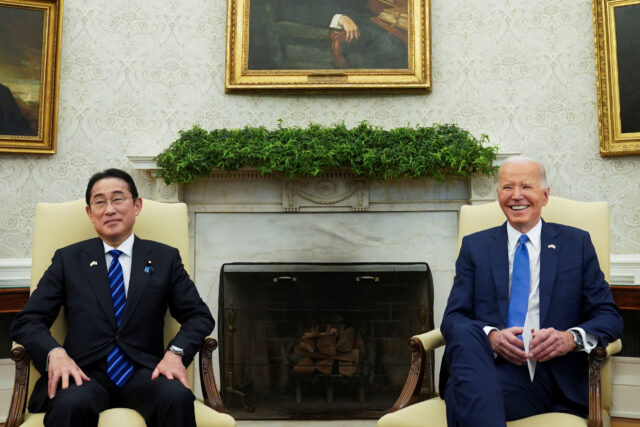Russian Deputy Foreign Minister Andrei Rudenko cautioned the Japanese ambassador on Friday that Tokyo’s increasing military collaboration with the United States is threatening stability and security in northeast Asia, describing these developments as “dangerous trends.”
Moscow reacted after the U.S. President Joe Biden and Japanese Prime Minister Fumio Kishida revealed plans on Wednesday for increased military cooperation and joint projects from missile development to moon landings, reinforcing the strong alliance between the two countries.
Washington and its allies, including Japan, have been bolstering their militaries to counter what they see as a growing threat from China in the South China Sea and the East China Sea, and to deter any attempt to seize Taiwan.
During a joint press conference at the White House, Biden and Kishida discussed the conflict in Ukraine, highlighting Japan’s increasing significance globally and to the United States. The leaders also addressed other critical international issues, including the situations in Gaza and Israel, North Korea, and various global hotspots.
Rudenko told Ambassador Akira Muto that Russia judged bilateral relations with Japan had sunk to an “unprecedented low level,” according to a statement from the Russian foreign ministry.
Developments in US-Japanese military cooperation “will be taken into account by the Russian side when forming policy towards Japan and the region as a whole,” Rudenko told the ambassador, it said.
The United States, along with its allies such as Japan, has been strengthening its military capabilities to address perceived increasing threats from China in the South China Sea and the East China Sea. This effort is also aimed at preventing any moves by Beijing to take control of Taiwan, a self-governing island that China claims as its territory.Biden also committed to keeping communication channels open with China and stated that the U.S.-Japan alliance is defensive. He had a conversation with Chinese President Xi Jinping last week.
With Inputs from Reuters
















